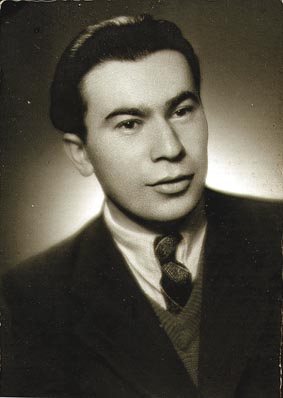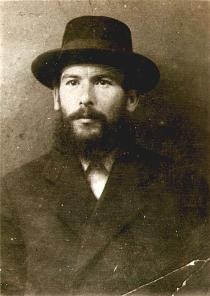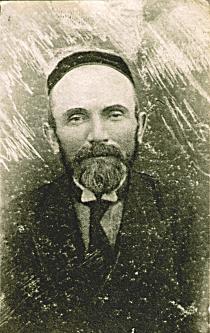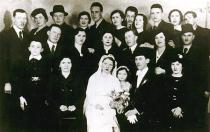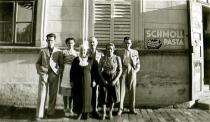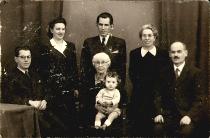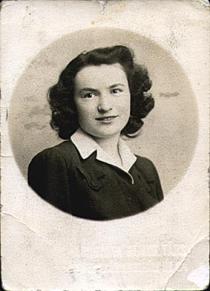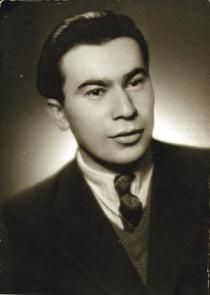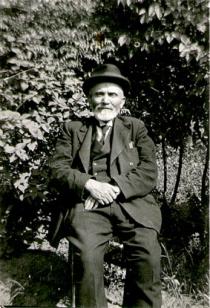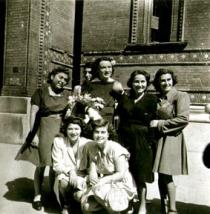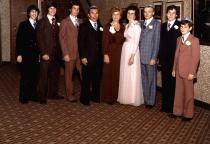This is a picture of Jakab Mermelstein, Jack, my brother. Jakab Mermelstien is my older brother. And now for sixty years, he's 'Jack'. He was born in 1921 in Somkut, in Szatmar county. My parents were living there at the time. They wandered around quite a lot. My older brother finished grammar school, that was popular then. He didn't learn anything else. He was very talented, but since he was Jewish, they were careful not to support Jews. As a Jewish child, his drawings were out in the hall [on display], he was so talented. And he was very clever, he knew a lot about everything. At the age of fifteen, he took over the work from mother - he'd never studied how to sew - he sewed trousers beautifully, men's trousers. And then, at the age of fifteen, he became the family provider. We respected him and loved him, because he was so diligent. He saw that my mother was struggling with the three children, and we lived really far from the city, six kilometers away. You had to go by foot, and clothes had to be carried there, and the tailored work had to be brought back, and then my older brother took it over. My mother struggled a lot, but she didn't complain ever. My older brother became a tailor. But a life artist, too. He could do something with anything. He made candy brittle in his childhood. He was still in grammar school, and he made candy brittle from sugar. He roasted it, then wrapped it and sold it. He had pocket money, and even my mother got some of it. When he was already older, then he made bead strings, and colored watch chains. It was the fashion then, the peasants wore them. He always figured something out. He was very talented. One day my fiance and I, who was already home, went past the Dohany street Jewish temple and somebody starts yelling from across the street, 'Olga! Jack (then still Jakab) is in the Arena Street [Dozsa Gyorgy Street, today] school.' I didn't know from my joy, if I shouldn't start running there to see him sooner. I went there. 'Oh god, look at you,' and I started crying. He pushed me away. 'What are you crying for?', he said. 'Be happy that I'm alive. I been through Typhus. You know how they dropped dead from that? Like flies', he said. 'Be happy, that you can see me like this, that I could wake up and could come home. Because the others, they burned down the lager and burned them. My older and younger brothers left with an empty sack in 1945. They went to Czechoslovakia, they were there for a while. Then they went to France, my older brother stayed for five or six years. He learned French. Then he went to Canada, that's where he met his wife. They lived there for three years, while they got together enough money to travel. Then they went to California, to Los Angeles, and got themselves together very nicely. Sometimes my older brother worked twenty hours a day. In the beginning, they struggled a lot, because they weren't really accepted in America either.
